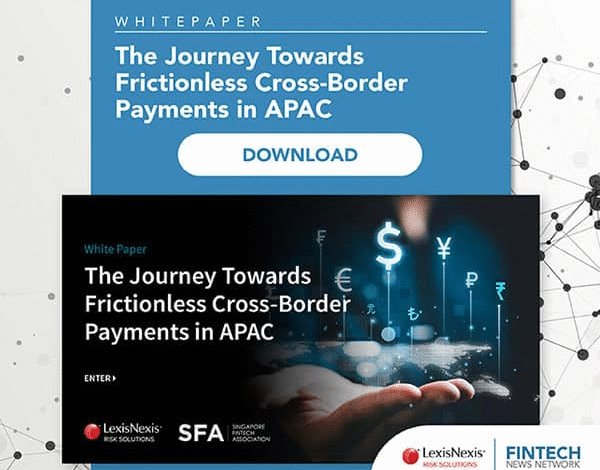SBI Chainlink Partnership Boosts Stablecoin Usage in Japan

The recent SBI Chainlink partnership marks a significant breakthrough in the realm of institutional tokenization and stablecoin adoption in Japan. By joining forces, SBI Group and Chainlink aim to enhance the infrastructure necessary for integrating digital assets into traditional financial systems across Japan and the broader Asia-Pacific (APAC) region. This collaboration leverages Chainlink’s oracle technology alongside SBI’s extensive market expertise to pave the way for innovative solutions like tokenized funds and regulated stablecoins. As interest in Japan’s digital assets sector continues to escalate, this partnership is poised to address the critical challenges in implementing robust, institutional-grade infrastructure. Furthermore, the focus on cross-chain interoperability and transparent reserve management highlights the commitment to fostering a secure and efficient stablecoin ecosystem that can thrive in the evolving financial landscape.
In an exciting development for the digital finance ecosystem, SBI Group has teamed up with Chainlink to propel the integration of blockchain technologies within institutional frameworks in Japan. This strategic alliance aims to unlock the potential of tokenizing real assets and fostering the use of stablecoins, thereby accelerating digital currency adoption in the vibrant Asia-Pacific (APAC) market. By harnessing advanced functionalities such as cross-chain interoperability and reliable data feeds, this initiative represents a significant step towards making digital assets more accessible and trustworthy for institutional players. The collaboration not only emphasizes the rising demand for secure asset tokenization but also aims to establish a robust infrastructure to support the growing interest in digital asset investment. As Japan continues to emerge as a key player in the blockchain realm, this partnership sets the stage for transformative changes across financial landscapes.
Overview of SBI Group and Chainlink Partnership
SBI Group and Chainlink have officially announced their strategic partnership, a move that signifies a pivotal moment for the digital asset landscape in Japan and the broader Asia-Pacific (APAC) region. This collaboration focuses on accelerating the institutional adoption of digital assets by developing cutting-edge infrastructure tailored for tokenized funds and regulated stablecoins. By harnessing SBI’s extensive financial market expertise alongside Chainlink’s advanced oracle technologies and interoperability solutions, both firms aim to navigate the complexities surrounding institutional tokenization effectively.
The partnership is set to leverage Chainlink’s robust platform, which includes its renowned Cross-Chain Interoperability Protocol (CCIP) and the innovative Chainlink SmartData. These tools are integral for facilitating seamless cross-chain token transfers and providing reliable on-chain net asset value (NAV) feeds essential for tokenized funds. Furthermore, Chainlink’s Proof of Reserve feature enhances transparency in reserve attestations for stablecoins, addressing one of the significant concerns surrounding digital currencies, thus fostering increased trust among institutional investors.
Advancing Institutional Tokenization in Japan
The move to advance institutional tokenization within Japan aligns with the nation’s evolving stance on digital assets. SBI Group, a dominant player in the Japanese financial sector, recognizes the growing demand for tokenized securities and digital assets. With survey data indicating rising institutional interest, the partnership with Chainlink seeks to eliminate barriers such as the lack of robust infrastructure that have traditionally hindered broader adoption. By creating a framework that supports tokenized assets, SBI aims to lead the charge in transforming Japan’s financial landscape to accommodate digital innovations.
This initiative not only signifies SBI’s commitment to integrating blockchain technology but also sets a precedent for the entire APAC region. As other institutions observe the collaboration’s progress, it is likely to inspire similar partnerships aimed at harnessing blockchain’s potential for financial applications. The successful implementation of institutional tokenization in Japan could catalyze a ripple effect across Asia, paving the way for enhanced stablecoin adoption and greater integration of digital assets into traditional finance.
The Role of Stablecoins in Digital Asset Adoption
Stablecoins play a crucial role in the broader adoption of digital assets, offering a reliable bridge between fiat currencies and the blockchain ecosystem. As SBI Group and Chainlink work towards establishing regulated stablecoin frameworks, they address one of the critical challenges faced by investors: volatility. By providing stable digital currencies that maintain parity with traditional fiat, these stablecoins can facilitate everyday transactions and create more reliable payment systems, which is essential for institutional players considering entry into this space.
In Japan, where regulatory frameworks are evolving, the introduction of well-structured stablecoins can significantly enhance trust among participants in the financial system. Enhanced transparency features, like those offered by Chainlink’s Proof of Reserve, ensure that stablecoins are not just backed by claims but by real-time attestations, improving overall market confidence. With SBI’s considerable influence in the region and Chainlink’s technology, this partnership is poised to drive broader acceptance of stablecoins across various financial applications.
Enhancing Cross-Border Transactions Through Blockchain
One of the distinctive advantages of the SBI and Chainlink partnership is the focus on enhancing cross-border transactions using blockchain technology. By leveraging Chainlink’s Cross-Chain Interoperability Protocol (CCIP), this collaboration aims to facilitate seamless settlements across different blockchain networks, which is particularly beneficial for international trade and investment. Cross-border transactions in traditional finance often involve arduous processes and significant costs; however, integrating tokenization with blockchain solutions can streamline these operations dramatically.
As more businesses and financial institutions adopt these technologies, the efficiency of payment-vs-payment (PvP) settlements becomes crucial. It reduces counterparty risk and optimizes liquidity for participants in the transaction process. The benefits of enhancing transaction speeds and reducing costs could lead to a more interconnected APAC financial ecosystem, encouraging companies in Japan and beyond to fully embrace digital asset frameworks that foster innovation and growth.
SBI Group’s Vision for Digital Asset Infrastructure
SBI Group’s vision for developing a robust digital asset infrastructure is pivotal in paving the way for institutional adoption of tokenized funds and digital currencies. Understanding that the future of finance lies in integrating blockchain technologies, SBI is committed to laying the groundwork that supports various digital asset operations. This holistic approach not only addresses immediate market demands but also anticipates future growth in the digital space, where institutions will require comprehensive solutions for their digital asset needs.
To achieve this vision, SBI plans to leverage its extensive network and expertise while working closely with Chainlink to push the boundaries of what is possible within the realm of institutional finance. This partnership signifies a strategic leap towards creating an ecosystem where digital asset services are not only viable but also efficient and compliant with regulatory standards. By focusing on expanding their capabilities, SBI Group aims to attract a broader range of institutional investors keen to explore the benefits of tokenization and stablecoins.
Chainlink’s Technological Solutions for Digital Finance
Chainlink has established itself as a leader in providing technological solutions that bridge the gap between on-chain and off-chain data. Its oracles enable smart contracts to interact with real-world data, a critical aspect for developing reliable financial applications. By partnering with SBI Group, Chainlink can showcase how its technology can facilitate the effective tokenization of real-world assets, making them accessible and tradable on blockchain networks.
The adaptability of Chainlink’s solutions, particularly concerning cross-chain interoperability and secure data feeds, positions it as a valuable ally in SBI’s mission to enhance the digital financial landscape. As the partnership unfolds, Chainlink’s innovations will likely play a vital role in constructing a transparent and efficient digital economy that benefits both institutions and individual investors, fostering an environment ripe for stablecoin adoption and the broader use of tokenized securities across Asia.
Implications for the APAC Blockchain Landscape
The partnership between SBI Group and Chainlink signifies a transformative shift for the blockchain landscape in the Asia-Pacific (APAC) region. Collaborations at this scale can lead to the establishment of new market standards while inspiring other financial institutions to invest in blockchain technology and digital asset infrastructures. As institutional validators, organizations like SBI and Chainlink can help demystify the benefits and functionalities of blockchain, especially concerning tokenization, thereby driving wider acceptance of these innovations.
As more players in the APAC blockchain ecosystem adopt similar strategies, the implications can be profound. The growing trend of institutional tokenization supported by robust infrastructure could lead to an increase in the availability of digital assets across various sectors, making the region a global leader in the blockchain space. Creating environments conducive to innovation is essential for meeting the demands of an evolving marketplace and ensuring that the adoption of technologies like stablecoins and tokenized assets becomes mainstream.
Navigating Regulatory Challenges in Digital Asset Adoption
Navigating regulatory challenges remains one of the most significant hurdles for furthering digital asset adoption in Japan and the APAC region. However, with regulators increasingly familiarizing themselves with the mechanics of blockchain technology and the benefits of tokenization, the landscape is gradually moving towards a more accommodating stance. SBI Group’s collaboration with Chainlink signifies a proactive approach to ensuring that their innovations comply with existing regulations while also advocating for frameworks that support further developments in the digital asset space.
As institutional players like SBI engage in regulatory dialogues and collaborations with Chainlink, the partnership serves as an example of how organizations can work together to address compliance concerns. By focusing on developing secure and transparent mechanisms for tokenized assets and stablecoins, both entities are playing a crucial role in shifting perceptions around digital currencies within regulatory circles, encouraging broader acceptance and consideration for innovative financial practices.
Future Trends in Institutional Tokenization and Digital Finance
The future of institutional tokenization and digital finance is poised to be transformative, fueled by partnerships like that of SBI Group and Chainlink. As technological advancements continue to reshape the financial landscape, it is essential to stay ahead of trends that signify how institutions approach investing in digital assets. We can anticipate a rise in demand for tokenized securities as significant frameworks are established, complemented by the growing preference for stablecoins as a reliable medium for transactions.
Continuous innovation in the blockchain space will push boundaries, allowing institutions to leverage new financial products tailored for the digital era. With SBI and Chainlink at the forefront, we can expect to see advanced applications in fund tokenization and stablecoin implementations that will not only evolve existing financial services but also provide new opportunities for growth and diversification across markets in Japan and the broader APAC region.
Frequently Asked Questions
What are the key benefits of the SBI Chainlink partnership for institutional tokenization in Japan?
The SBI Chainlink partnership aims to advance institutional tokenization in Japan by leveraging SBI’s financial market expertise alongside Chainlink’s innovative technologies. This collaboration introduces crucial infrastructure for converting real-world assets into digital tokens, facilitating wider adoption of regulated stablecoins and enhancing liquidity in the market.
How does the SBI Chainlink partnership facilitate stablecoin adoption in APAC?
By combining SBI’s extensive knowledge of financial markets with Chainlink’s advanced oracle technology, the SBI Chainlink partnership aims to boost stablecoin adoption across APAC. This initiative will provide the necessary infrastructure for transparent reserve attestations and efficient cross-border transactions, making regulated stablecoins more accessible to institutions.
What technologies are being utilized in the SBI Chainlink partnership to support digital assets?
The partnership leverages several Chainlink technologies, including the Cross-Chain Interoperability Protocol (CCIP) for seamless digital asset transfers, SmartData for on-chain NAV feeds, and Proof of Reserve for stablecoins. These innovations are crucial for enhancing the efficiency and transparency of institutional tokenization in Japan.
Why is the SBI Group Chainlink partnership significant for the future of digital assets in Japan?
The SBI Group Chainlink partnership is significant because it aims to overcome existing barriers to institutional tokenization in Japan. By providing a robust framework for regulated digital assets and stablecoins, the partnership is set to redefine the landscape for institutional investors and catalyze the growth of the digital asset market in Japan.
What role does SBI’s financial expertise play in the SBI Chainlink partnership?
SBI’s financial expertise is instrumental in the SBI Chainlink partnership as it brings extensive knowledge of market needs, regulatory requirements, and best practices in financial services. This insight ensures that the infrastructure developed in collaboration with Chainlink is both effective and compliant with Japanese financial standards.
How will the SBI Chainlink partnership impact cross-border transactions in the future?
The SBI Chainlink partnership is poised to enhance the efficiency of cross-border transactions by implementing payment-vs-payment (PvP) settlement solutions. Utilizing Chainlink’s oracle technology, this initiative will streamline cross-chain token transfers, reducing settlement risks and fostering greater participation from institutional investors in international markets.
What is the significance of tokenized funds in the SBI Chainlink collaboration?
Tokenized funds are significant in the SBI Chainlink collaboration as they represent a new method of managing investments, allowing for greater liquidity and accessibility. By providing on-chain net asset value feeds, the partnership aims to facilitate smoother transactions and operational models for institutional investors interested in blockchain technology.
How does the SBI Chainlink partnership aim to enhance transparency in stablecoin issuance?
The SBI Chainlink partnership focuses on enhancing transparency in stablecoin issuance through the use of Proof of Reserve technology, which allows for real-time verification of the reserves backing these stablecoins. This approach is crucial for building trust among institutional investors and ensuring regulatory compliance.
What past projects highlight the experience that SBI and Chainlink bring to their partnership?
Past collaborations, such as those involving UBS Asset Management and MAS Project Guardian, showcase the expertise of SBI and Chainlink in developing infrastructure for digital assets. These projects provide a strong foundation for the current partnership’s objectives, reinforcing the feasibility of advanced stablecoin and tokenization use cases.
What challenges does the SBI Chainlink partnership aim to address in institutional tokenization?
The SBI Chainlink partnership seeks to tackle the challenge of inadequate institutional-grade infrastructure that has hindered wider adoption of tokenized securities. By addressing these barriers through innovative solutions and strategic collaboration, the partnership aims to foster an environment conducive to the growth of institutional digital assets.
| Key Point | Details |
|---|---|
| Partnership Announcement | SBI Group and Chainlink are collaborating to enhance digital asset adoption in Japan and APAC. |
| Focus Areas | The partnership will initially target institutional tokenization and stablecoin use in Japan. |
| Technological Components | Utilize Chainlink’s CCIP, SmartData, and Proof of Reserve for cross-chain transfers and stablecoin transparency. |
| Institutional Interest | SBI has identified growing institutional interest in tokenized securities but acknowledges infrastructure challenges. |
| Previous Collaborations | Experience gained from partnerships with UBS Asset Management and MAS Project Guardian provides a solid foundation for this work. |
| Objective | Aim to scale advanced fund tokenization and the use of stablecoins for efficient cross-border payments. |
Summary
The SBI Chainlink partnership marks a significant step towards enhancing the infrastructure necessary for digital asset adoption in Asia, particularly focusing on tokenization and stablecoins. By combining SBI’s deep-rooted financial market expertise with Chainlink’s innovative technology, this collaboration aims to remove barriers to institutional-grade adoption of digital assets in Japan and beyond.



